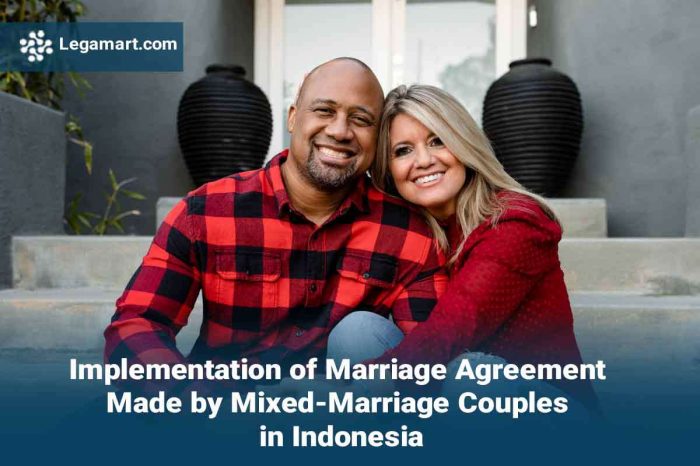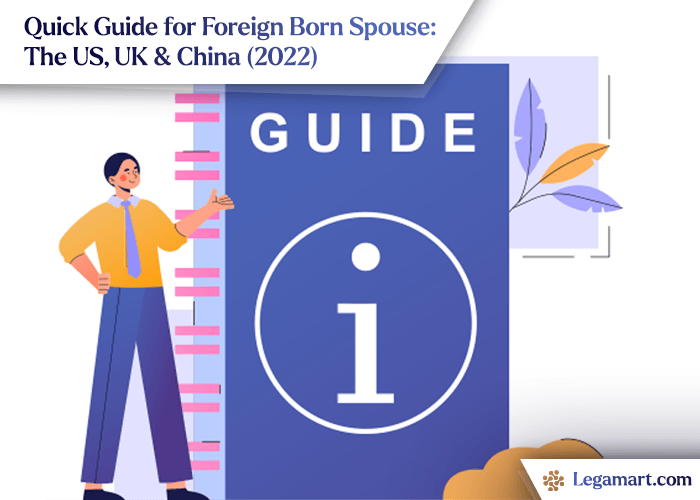Family Law
Marriage
International marriage can present several legal issues for individuals, particularly regarding immigration, family law, and property rights. Here are some legal issues that may arise in the context of international marriage.
-
International marriage Issues?
-
What is international marriage?
-
Associated legal matters
-
The legitimacy of the union
-
Acceptance of international marriage licences
International marriage Issues?
Immigration: International marriage can impact the immigration status of both spouses. For example, if one spouse is a citizen of a different country, the other spouse may need to obtain a visa or residency status in order to live and work in that country. This can involve navigating complex immigration laws and regulations.
Family Law: International marriage can also raise legal issues related to family law, such as prenuptial agreements, divorce, child custody, and child support. The laws governing these issues can vary widely between countries, making it challenging for individuals to navigate the legal system.
Property Rights: International marriage can also impact property rights for both spouses. Depending on the laws in the country where the couple resides, different rules may apply to property acquired during the marriage. There may be different procedures for dividing property in the event of divorce.
Language and Cultural Barriers: International marriage can also present language and cultural challenges, particularly when navigating legal systems in different countries. Individuals may struggle to understand legal documents or communicate effectively with lawyers and judges. Overall, international marriage can be complex and present several legal challenges for individuals. It is crucial to seek qualified legal advice and guidance to help navigate these issues and protect one’s legal rights.
What is international marriage?
As globalisation advances, new forms of communication and transportation are bringing people closer together, and this trend is reflected in the rise in “international” weddings. A marriage that occurs in another nation is referred to as an international marriage. Intermarriage or transnational marriage are other names for it. These romances can be complex and have their own particular set of regulations. Because of this, it’s crucial to comprehend all the legal ramifications before choosing a course of action. Fortunately, there is a wealth of information accessible to help you understand the legal ramifications of this relationship. International relationships are very prevalent, especially among citizens of different nations. Some even take place online. Some folks, though, are currently doubting their partner’s genuineness.
You can take several precautions to safeguard your loved ones from fraud, including yourself. Verifying the other party’s honesty is the first step. It’s crucial to remember that many international marriages are organised through businesses, which may not be as reliable as you believe. Check the needs for a marital relationship in the nation you desire to wed in when you intend to get engaged abroad. Before getting married, some nations require the parties to move together as neighbours for a predetermined time. You must also be of legal age to get married nearby. Be sure your future husband is a legal citizen of the nation you wish to wed before the international wedding ceremony. The charge or visitor bureau of the nation can give you the relevant information. For more information, you can also contact the state in your region or the attorney general’s office in various governments. In today’s environment, international marriages are becoming increasingly common. Foreign couples should make sure their partner can handle any potential conflicts. The potential of fraud and fraud could be a significant issue with international marriages. For instance, your new spouse might try to access your bank account or apply for citizenship in your country. You should contact a reliable international marital life organisation considering these concerns. To help you with these problems, there is a network of detectives available all around the world.
Abuse may also be a problem in marriages across the globe. Several nations do not recognise intercontinental marriages as civil unions, and neglect is likely. The connection may be more dangerous due to the age gap. In several minority nations, marriage is also typically prohibited just for those who have been divorced. An abusive relationship may be one with a divorced spouse.
As long as the couple complies with all legal criteria, the government of several nations recognises marriages consummated outside their borders. A foreign marriage must, however, be officially recognised by the local authorities. Because of this, it’s crucial to follow local laws and customs. You must obtain a valid visa from the local authorities to marry for the 90 days that follow your relationship. You could have to stay in the nation for that time if your marriage is illegal.
One of the main problems with cross-border relationships is the couple’s age. The minimum age varies from region to region.If either partner is under the age of 18, their parents must give their consent. Some nations also want a document obtained through the marriage office. In Upper Ireland, a wedding must also be translated and validated before it can occur.
Consequently, it is crucial to consult the legal requirements of the government just before getting married.
Registering for marriage requires a valid passport and proof that you have no restrictions. You should go to the inscriber office of your nation to receive this. If so, you’ll need to complete an extra application form that needs to be published three times.
Once you’re done, take it and your passport to the local law enforcement station. In most nations, it is possible to get married by municipal officials or other people with the right to perform weddings. Only the local authorities or those directly involved can provide legally binding information on the specific formalities.
Associated legal matters
The country’s laws that apply to the numerous other legal difficulties related to marriage are not necessarily determined by the location of your marriage (e.g. name, property, custody of children). The legal system that will be used should be determined separately, especially if the bride and groom are from different countries. Before being married, it is generally advisable to speak with a lawyer with relevant experience who can, upon request, also assist with the creation of a marriage contract.
The legitimacy of the union
There isn’t a specific process or authority that can only recognise marriages contracted outside of the country. So, the validity of a marriage is just a preliminary concern when it comes to other administrative acts (such as a name change, a request to create a family book at a domestic registration, a change of entry on a tax card, etc.). The appropriate agency must make its own decision regarding this initial matter.
Acceptance of international marriage licences
A foreign marriage certificate proves that the marriage occurred abroad. Foreign marriage certificates are frequently only acknowledged by domestic authorities or courts after the validity of the documents has been established in a different case.
For this reason, various international standards and procedures have been created.
Find Best Lawyers and Legal help in
Latest Articles
Daniel Dhanu Prayogo
- November 27, 2022
Tell us more about your problem.
Please give a brief description about what it is you need to talk to our lawyers about ?
Frequently Asked Questions
If a couple from different countries decides to get married, what are the legal implications for their immigration status and their ability to work and reside in either country?
When a couple from different countries decides to get married, there can be legal implications for their immigration status depending on the respective immigration laws of the countries involved. Generally, the non-citizen spouse will need to apply for a visa or residency permit to enter and stay in their partner’s country.
If the couple intends to live in one of the countries permanently, the non-citizen spouse may need to apply for permanent residency or citizenship. This process can involve background checks, medical exams, and other requirements. The specific requirements and procedures vary by country and can be complex.
Regarding the ability to work, the non-citizen spouse may need to obtain a work permit or other authorization to work in their partner’s country. Again, the rules and requirements for obtaining work authorization vary and can depend on factors such as the type of work and the duration of stay.
It is important for couples contemplating marriage across borders to research and understands the immigration laws and procedures that apply to their situation. Consulting with an immigration lawyer or qualified immigration advisor can be helpful in navigating the process.
How does the law treat international marriages in the event of a divorce, and what factors are taken into account when dividing assets and determining child custody and support?
The treatment of international marriages in the event of a divorce depends on the laws of the countries involved and any applicable international treaties or agreements. Generally, the divorce can be handled through the legal system of either country or by mutual agreement between the parties.
When it comes to dividing assets, the laws of the country where the divorce is filed will usually determine how property is divided. In some cases, international law or treaties may apply. Some factors that may be considered when determining division of assets include the length of the marriage, the contributions of each spouse, and the needs of any children involved.
Child custody and support are also typically decided based on the laws of the country where the divorce is filed. However, if one parent lives in a different country, international treaties such as the Hague Convention on the Civil Aspects of International Child Abduction may come into play. The best interests of the child are usually the primary consideration in determining custody and support arrangements.
It is important for couples with international marriages contemplating divorce to seek legal advice from a qualified attorney experienced in international family law to understand their rights and obligations under the laws of the relevant countries.
If one spouse is a citizen of a country that does not recognize same-sex marriage, but the other spouse is a citizen of a country that does, what legal implications does this have for their ability to be recognized as a married couple and receive benefits such as spousal immigration visas?
The legal implications for a same-sex couple in this situation can be complex and depend on the immigration laws of the countries involved. In general, if one country does not recognize same-sex marriage, it may be difficult for the non-citizen spouse to obtain a spousal immigration visa or other benefits based on their marital status.
In some cases, the country where the marriage is recognized may offer alternative routes to residency or citizenship, such as work visas or family reunification visas. However, these options may not provide the same rights and protections as a spousal immigration visa.
It is important for couples in this situation to seek legal advice from an attorney experienced in immigration and international family law to understand their options and any potential challenges they may face. They may also consider contacting advocacy organizations that specialize in supporting same-sex couples navigating immigration issues.
How can prenuptial agreements be used in the context of international marriages, and what legal considerations must be taken into account when drafting and enforcing such agreements across different jurisdictions?
Prenuptial agreements can be a useful tool for couples in international marriages to clarify property and financial arrangements in the event of divorce or separation. However, there are several legal considerations that must be taken into account when drafting and enforcing such agreements across different jurisdictions.
Firstly, it is important to ensure that the prenuptial agreement is valid and enforceable under the laws of all relevant countries. This may require consulting with attorneys in each country and complying with any specific requirements for executing and registering the agreement.
Secondly, prenuptial agreements cannot override certain legal protections or obligations, such as child support obligations or provisions related to the division of marital property. It is important to carefully consider the provisions of the agreement to ensure they do not conflict with applicable laws.
Thirdly, changes in circumstances such as the birth of children, relocation to a different country, or significant changes in income or assets can impact the enforceability of a prenuptial agreement. It may be necessary to update or modify the agreement periodically to reflect these changes.
Finally, it is important to understand that different countries have different legal systems, and enforcement of prenuptial agreements can vary depending on the jurisdiction. For example, some countries may give more weight to the needs of the economically weaker spouse or may place stricter limits on the terms of the agreement.
Overall, couples in international marriages should consult with experienced attorneys in each relevant jurisdiction when considering a prenuptial agreement and take appropriate steps to ensure the agreement is valid and enforceable under the laws of all relevant countries.














